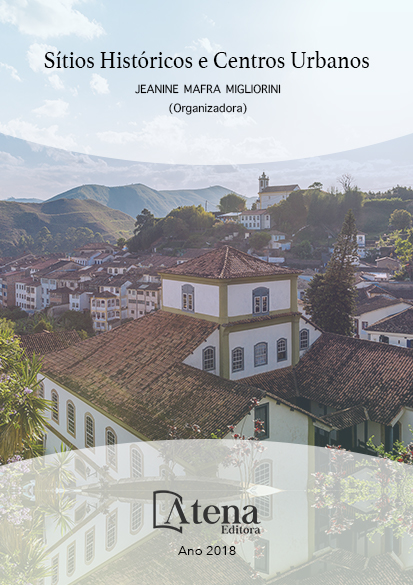
O Patrimônio Industrial Brasileiro: Reflexões à Memória e História do Século XX
O patrimônio industrial compreende
uma relevante questão a ser desenvolvida no
campo do patrimônio cultural que se encontra
sustentada pela diversificação e ampliação do
conceito de patrimônio desde a última década
do século XX. Seu desenvolvimento ocorre
desde o final do século XIX e, principalmente,
ao longo da segunda metade do século XX a
partir da qual se constrói um questionamento
com relação ao resgate à memória e à história
social sob a perspectiva da memória e história
econômica. A partir dos conceitos desenvolvidos
por órgãos internacionais (UNESCO, ONU,
ICOMOS) acerca do patrimônio industrial e
da arqueologia industrial tem-se a construção
de uma dimensão mais elaborada sobre a
importância e os significados de elementos
industriais como composição da diversidade do
patrimônio cultural. As reflexões determinam
um questionamento acerca do papel, da
atuação e do lugar de diferentes grupos de
preservação do patrimônio e da cultura com
relação à diversidade dos elementos que
compõem o patrimônio industrial no Brasil e
no mundo. Tais considerações determinam
elementos de identidade social com múltiplas
formas de manifestação seja da cultura
material ou imaterial, constituídas não
somente pela centralidade da relação capitaltrabalho, mas pelo binômio sociedade-cultura.
Por fim, uma reflexão acerca da necessária
interpretação do patrimônio industrial que
sobrepuja o pensamento simplista da produção
manufatureira e se compõe sob diferentes
formas de manifestação e uma complexa
perspectiva e interpretação.
O Patrimônio Industrial Brasileiro: Reflexões à Memória e História do Século XX
-
DOI: Atena
-
Palavras-chave: patrimônio industrial; patrimônio cultural; história social, arqueologia industrial.
-
Keywords: industrial heritage; cultural heritage; social history, industrial archeology.
-
Abstract:
The industrial heritage includes
an important issue to be developed in the field
of cultural heritage that is sustained by the
diversification and expansion of the concept
of heritage since the last decade of the 20th
century. Its development has taken place since
the end of the 19th century and, especially,
throughout the second half of the 20th century,
from which a questioning about the rescue of
memory and social history from the perspective
of memory and economic history is built.
From the concepts developed by international
organisms (UNESCO, ONU, ICOMOS) about
industrial heritage and industrial archeology,
the construction of a more elaborate dimension
have the importance and meanings of industrial
elements as a composition of the diversity of cultural heritage. These reflections
determine a question about the role, performance and place of different groups of
heritage and culture preservation in relation to the diversity of the elements that compose
the industrial heritage in Brazil and World. Such considerations determine elements of
social identity with multiple forms of manifestation whether of material or immaterial
culture, constituted not only by the centrality of the capital-labor relationship, but also
by the society-culture binomial. Finally, a reflection is necessary for interpretation of the
industrial heritage that surpasses the simplistic thinking of the manufacturing production
and is composed under different forms of manifestation and a complex perspective and
interpretation.
-
Número de páginas: 15
- Ronaldo André Rodrigues da Silva


